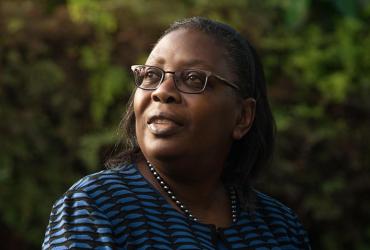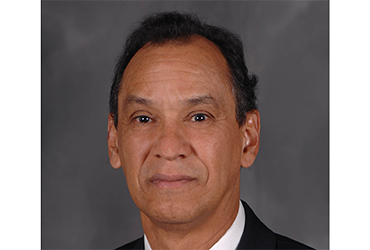2023 Symposium invited speakers
Meet our prestigious, diverse group of presenters, panelists, and workshop leaders who are at the forefront of 'Environmental Justice, Ecology, and Race'.
Thursday, April 13th

Keynote Speaker: 6 - 7 PM
Dorceta Taylor | Yale University
Senior Associate Dean of Diversity, Equity, and Inclusion | Professor, Environmental Justice
Biography: Dr. Dorceta Taylor is a professor at the Yale School for the Environment. Prior to that she was a professor of environmental sociology at the University of Michigan’s School for Environment and Sustainability (SEAS) for 27 years. She was the James E. Crowfoot Collegiate Chair and the Director of Diversity, Equity, and Inclusion at SEAS. She also holds a joint appointment with the Program in the Environment. Dr. Taylor is the former Field of Studies Coordinator for SEAS’ Environmental Justice Program and a past Chair of the American Sociological Association’s Environment and Technology Section. Professor Taylor received PhD and master’s degrees from the School of Forestry & Environmental Studies (now the Yale School of the Environment) and the Department of Sociology at Yale University in 1991, 1988, and 1985.
In 2014 Dr. Taylor authored a landmark national report, The State of Diversity in Environmental Institutions: Mainstream NGOs, Foundations, and Government Agencies. She authored a second diversity report in 2014 entitled, Environmental Organizations in the Great Lakes Region: An Assessment of Institutional Diversity.
Dr. Taylor has published influential books also. Her most recent book, The Rise of the American Conservation Movement: Power, Privilege, and Environmental Protection, was published in 2016 during the 100th-year anniversary of the founding of the National Park Service. The book examines how conservation ideas and politics are tied to social dynamics such as racism, classism, and gender discrimination. Revelations made in the book about the ideologies of John Muir, the slave-owning past of John James Audubon and the eugenicist history of the Save the Redwoods League and the National Park Service have led to the Sierra Club, the National Audubon Society, and the Save the Redwoods League acknowledging the problematic discourses and actions of their founders. A recent congressional hearing on the lack of diversity in the Department of the Interior also acknowledged the significance of this work as well as other institutional diversity research.
Taylor’s 2014 book, Toxic Communities: Environmental Racism, Industrial Pollution, and Residential Mobility, examines the racial and socio-economic dimensions of exposure to environmental hazards in the U.S. She is also the author of The Environment and the People in American Cities: 1600s-1900s. Disorder, Inequality, and Social Change. The book examines the history of environmental inequality and urban environmental activism. It received the Allan Schnaiberg Outstanding Publication Award given by the Environment and Technology Section of the American Sociological Association in 2010.
Dr. Taylor was honored by the Smithsonian Institution in 2019. She is the recipient of several awards including the National Audubon Society Women in Conservation Award, the National Science Foundation Presidential Award for Excellence in Science, Mathematics, and Engineering Mentoring, the Burton V. Barnes Award for Academic Excellence from the Michigan Chapter of the Sierra Club, the Charles Horton Cooley Award for Distinguished Scholarship from the Michigan Sociological Association, and the Frederick B. Buttel Distinguished Contribution Award from the Environment and Technology Section of the American Sociological Association.
Friday, April 14th

Opening remarks: 8:30 - 9:30 AM
Oscar Rocha | ����ֱ�� State University
Professor, Biological Sciences
Biography: The goal of Dr. Rocha's work has been to study genetic variation in natural populations of plants and animals using molecular markers. He is interested in understanding how ecological factors, such as reproductive biology and human disturbances, affect the distribution of genetic variation. This information is useful for establishing conservation strategies for these populations.

Recentering Conservation (morning session): 9:30 AM - 12 PM
Paul Chiyokten Wagner | Protectors of the Salish Sea
Founder | Saanich Nation tribal member
Biography: Paul Chiyokten Wagner is a member of the Saanich Nation and founder of Protectors of the Salish Sea and the Tarpee housing project where he and volunteers built and gifted 47 Tarpees (indigenous structures) with wood stove heaters to indigenous families with elders at the Standing Rock resistance camps. To date 88 Tarpees have been gifted and utilized to help stop fossil fuel expansions. He is also Co-president of the board of directors for White Swan Environmental. Chiyokten spoke alongside Jill Stein at the COP21 Paris Climate talks as well as organizing and participated in many Chase Bank divestment campaigns who are the number one investors in Tar Sands pipeline projects. He has launched numerous prayer walks for our Salish Sea and recently returned from 4 months on the frontlines at Fairy Creek protecting Oldgrowth forest ecosystems.

Recentering Conservation (morning session): 9:30 AM - 12 PM
Kawenniiosta Jock (Wolf Clan)
(Orenhre'kowa Ki'taratakie) | Waterfall Unity Alliance
Board of Directors
Biography: Kawenniiosta Jock, Kanien’kehá:ka Wolf Clan, is an activist, land protector, master seamstress and artist. Kawenniiosta has helped develop traditional support, cultural teachings and language preservation within the tribe and is a traditional full-spectrum doula who uses indigenous methods and medicines. Kawenniiosta is an alumna of the Akwesasne Freedom School and is passionate about her people and culture.

Recentering Conservation (morning session): 9:30 AM - 12 PM
Elaine (Lan Yin) Hsiao | ����ֱ�� State University
Assistant Professor, School of Peace and Conflict Studies
Biography: Elaine (Lan Yin) Hsiao is an Assistant Professor in ����ֱ�� State University’s School of Peace and Conflict Studies. She is a critical socio-legal scholar and political ecologist, integrating peace and conflict studies with transboundary conservation and protected areas, Indigenous and community governance, human rights and rights of nature, and development alternatives. Much of her work seeks to address conflicts in conservation (e.g., human-protected area conflicts, human-wildlife conflicts), conservation in places of conflict (i.e., conflict-sensitive and conflict-resilient conservation), and conflict resolution through conservation (environmental peacebuilding). Dr. Hsiao Chairs the IUCN Commission on Environment, Economic and Social Policy (CEESP) Theme on Environment and Peace and its Task Force on Migration, Environmental Change and Conflict. She is a Member of the IUCN Species Survival Commission (SSC) Human-Wildlife Conflict Task Force, Environmental Peacebuilding Association (EnPax), and an Honorary Member of the ICCA Consortium. At KSU, Dr. Hsiao teaches Environmental Conflict Resolution and Environmental Justice.

Recentering Conservation (morning session): 9:30 AM - 12 PM
Aaron Rimmler-Cohen | Farm Sanctuary
Senior Director of Advocacy
Biography: Aaron Rimmler-Cohen (he/his) brings more than a decade of experience in food systems to Farm Sanctuary. Succeeding in relevant, director-level roles in politics, agriculture, and at a community-based food system consultancy in North Carolina, Aaron’s previous work has given him a number of food system perspectives and frameworks. He has a Master of Public Policy degree from Duke University, where he has also served as a co-instructor on “Well-Being Economics.” Farm Sanctuary’s advocacy approach is grounded in the belief that, as a national non-profit organization involved in food work, our most important priority should be shifting financial, social, and political resources to the community-driven organizations that have been working towards just and sustainable food system transformations, often for decades. As a result, we have started intentional learning and support pilots with and the. Both projects seek to learn from and support transformation in ways that align with environmental justice.

Meet the author (optional lunch breakout session): 12 - 1 PM
Valerie Trouet | University of Arizona
Professor, Laboratory of Tree-Ring Research | Author, Tree Story
Sponsored by ����ֱ�� State's Department of Geography and Office of Sustainability. If you registered to attend virtually, you will receive an email with the link the week of the symposium.

Restorative Visions (afternoon session): 1 - 3:30 PM
Kofi Boone | North Carolina State University
Professor, Landscape Architecture and Environmental Planning
Talk Title: Co-creating Just Futures
Talk Description: What roles can environmental design and planning play in redistributing power, information, and resources required to build community capacities? This presentation shares research, current work, and speculates on the potential for co-creation and communal strategies to support environmental justice.
Biography: Kofi Boone, FASLA is a Joseph D. Moore Distinguished Professor and University Faculty Scholar at NC State University. Kofi is a Detroit native and a graduate of the University of Michigan. His work is in the overlap between landscape architecture and environmental justice with specializations in democratic design and interpreting cultural landscapes. He has published broadly and is the winner of student and professional ASLA awards including the Jot D. Carpenter Teaching Medal. He is Past President of the Landscape Architecture Foundation, Director of the Just Communities Lab, and serves on the boards of Black Landscape Architects Network and the Land Loss Prevention Project.

Restorative Visions (afternoon session): 1 - 3:30 PM
Nayyirah Shariff | Flint Rising
Director
Biography: Nayyirah Shariff is a grassroots organizer based in Flint, Michigan. Nayyirah was one of the co-founders of the Flint Democracy Defense League, a grassroots group formed to confront Flint’s emergency manager in 2011. They have more than ten years of experience organizing around local, state, and national electoral and issue campaigns. They have been featured on Democracy Now!, Move to Amend podcast, Al-Jazeera, and Netroots National speaking out about the problems with Flint’s water and with Michigan’s emergency management of local governments. They are currently the director of , a coalition of Flint residents and community groups, labor, and progressive allies that formed in response to Flint’s emergency declaration.

Restorative Visions (afternoon session): 1 - 3:30 PM
Taraneh Meshkani | ����ֱ�� State University
Assistant Professor, Architecture
Biography: Taraneh Meshkani is an urbanist, architect, and educator. She holds a doctoral degree from Harvard Graduate School of Design, Masters of Architecture from the University of Toronto, and Bachelors of Architecture from Azad University in Tehran.
Meshkani’s research and teaching engage a range of issues in urban and architectural history, theory, and design with the focus on the linkage of new information and communication technologies and their spatialities to the social and political processes of contemporary cities. Her recent works examine the impact of social media on the use of urban spaces, new territorial manifestations of data, spaces of conflict, and socio-political dimensions of urban infrastructures.
Meshkani has served on the editorial board of the New Geographies journal and was a co-editor in chief of NG7: Geographies of Information. She has been a doctoral fellow of the Energy Consortium at Harvard University Center for the Environment where she studied topics at the intersection of the landscape of energy and urbanization and explored the urban environmental challenges.
Before coming to ����ֱ�� State University, Meshkani has held teaching and research positions at Harvard University and Boston Architectural College where she has taught courses on urban history and theory, architecture history, contemporary landscape architecture in urban theory, film and cities. She has worked in different architectural firms, including Morphosis Architects, organized many lectures, exhibitions, and conferences such as the Emerging Models of Planning Practices in Singapore and Doctor of Design conferences at Harvard Graduate School of Design. Her work has been published and presented in Canadian Architect Magazine, International Journal of Islamic Architecture, MediaCities, and ACADIA, among other publications.


